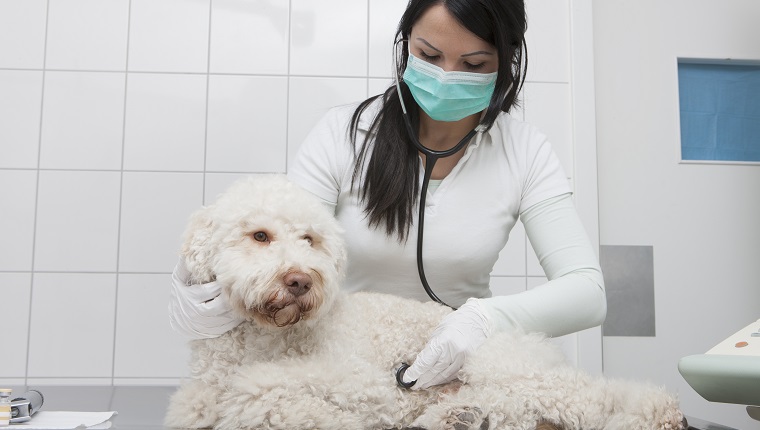Diabetic hepatopathy in dogs is a medical condition that results in the presence of lesions on a dog’s liver. It seems to involve a dog’s metabolic system, and the condition is usually linked to dogs who also suffer from diabetes mellitus.
Additionally, the condition appears to mostly affect older dogs and male canines.
If you see signs that your dog might be suffering from complications of diabetes, then you must consult your veterinarian for a proper diagnosis and advice. Here’s what you should know about the symptoms, causes, and treatments of diabetic hepatopathy in dogs.
Symptoms Of Diabetic Hepatopathy In Dogs
Diabetic hepatopathy in dogs is a condition that can produce a pretty wide range of symptoms. Some of the most commonly seen symptoms include:
- Acting lethargic
- Losing weight
- Vomiting and diarrhea
- Urinating more than usual and drinking water more than usual
- Loss of appetite
- Eyes turning a yellow color
Causes Of Diabetic Hepatopathy In Dogs

The cause of diabetic hepatopathy in dogs can be one of a number of things. Some of the most commonly attributed causes include:
- Zinc deficiency
- Increased blood sugar levels
- Niacin deficiency
- Obesity
- Ingesting fungal toxins
- Excess of glucagon
- Amino acid deficiency
In general, it also seems that the condition is most likely to affect male dogs who are older in age. Some studies have also suggested that a genetic factor might be involved, with the Australian Terrier, Beagle, and Miniature Poodle being some of the breeds most affected by it.
Veterinary Treatments
If you suspect that your dog is developing diabetic hepatopathy, then your veterinarian will want to carry out a full physical examination of your canine. They’ll conduct comprehensive blood tests, as well as urine tests.
In some cases, vets may also order a skin biopsy, and they may use X-rays and ultrasounds of the abdominal area to confirm a diagnosis.
When it comes to treatment, vets often recommend changing your dog’s dietary habits. They commonly advise switching to a high-protein diet and using anabolic supplements.
Additionally, your vet might prescribe medicine for your dog to help with their liver function. As always, if your vet prescribes your dog any medicine or supplements, then it is vital that you stick to the precise dosage and frequency instructions and complete the full course of treatment.
Has your dog developed diabetic hepatopathy? What dietary advice did your vet recommend to help your canine recover? Tell us all about it in the comments below.









